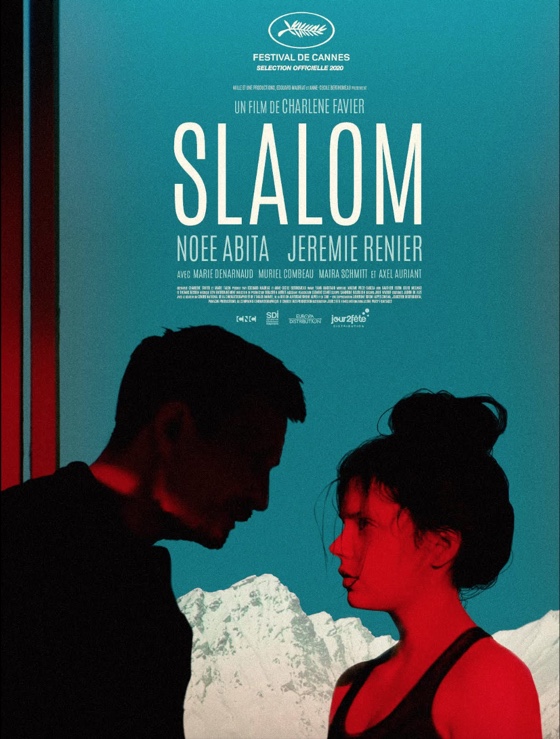We know this story: Prodigy teen athlete; abusive adult coach. We’ve seen this before. But only on the news, and only in the abstract. For her feature debut, French writer-director Charlène Favier tells a fictional version of it, with a hushed reserve and a brutal unsentimentality that never sugarcoats hidden horrors, and never sensationalizes them.
Fifteen-year-old Lyz Lopez has just joined an intense skiing academy in the French Alps, one that expects her to keep up with schoolwork while also training hard and aiming high with her sport: the Olympics are the goal. Up-and-comer Noée Abita, just a few years older, at 20, when the film was shot, fizzes with the emotional turbulence of adolescence, her Lyz a mess of ambition and drive, petulance and uncertainty… and intrigue and confusion when the attentions of her coach, former champion Fred (Jérémie Renier: Summer Hours), shift from disparaging indifference to intense focus when she starts winning races.

Our more mature eye is aware of how Fred has been grooming Lyz, but even we see that only in retrospect. Lyz is completely blindsided, her extremely tentative explorations of her budding sexuality utterly thrashed by Fred’s predations. Favier’s is an incisive, nontitillating female gaze on sexual abuse; it’s all too easy to see how another filmmaker might have depicted what happens here as alluring, as appealing, as sexy, but Favier shares Lyz’s revulsion at Fred’s twisting of his authority over her, and is uncompromising in showing it. And so we are repulsed, too.
Slalom is a tough watch with no easy resolution and almost no satisfaction to be had beyond that of a well-crafted tale illuminating a grim reality that has gone unspoken of for too long. Lyz’s sport and the film’s title are, of course, metaphoric as well as actual: it’s not just athletics but the world at large that is an obstacle course of predatory men that girls and women must learn how to navigate. Mostly, this is about Lyz discovering that harsh truth.
























